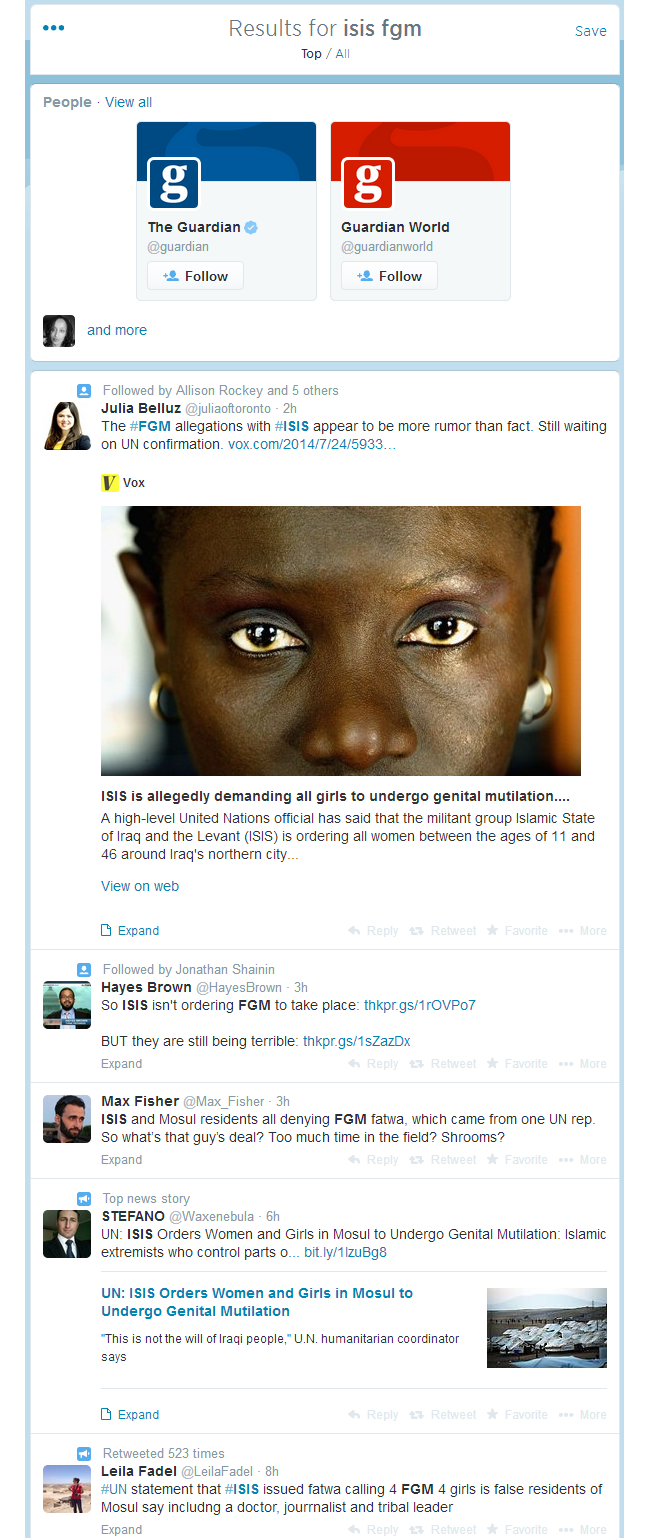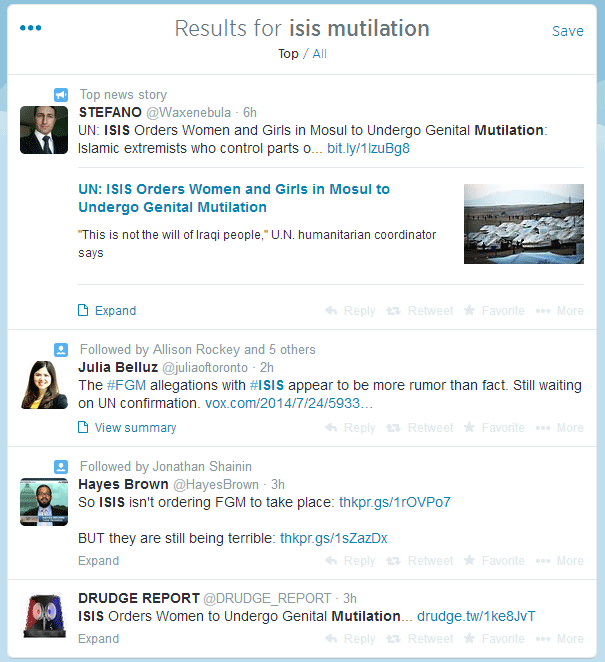
Twitter is great at spreading information. The problem is that the platform is agnostic about the veracity of that information, and is equally eager to broadcast valid information about a recent natural disaster and invalid information about President Obama’s birthplace. Today was a really good example — a lot of people (myself included) were shocked to see reports emanating from the U.N. and The Guardian that ISIS was demanding that women in the territory it controls in Iraq undergo female genital mutilation. As it turns out, this is, thankfully, a pretty flimsy story.
There are a lot of reasons why false rumors tend to do better than debunkings, and Twitter tends to exacerbate them — the short version is that people have a lot of psychological motivation to retweet rumors that fit into their preconceived notions (ISIS is, after all, a rather barbaric group), but tend to be a lot less excited about passing around debunkings, except when the debunkings serve some psychological end (Obama ain’t a Muslim).
So how did Twitter do in this case? I ran a couple of searches to find out.
First, I entered the search terms “ISIS” and “FGM,” or female genital mutilation:

Not bad. Mostly debunky. But things weren’t as good when I entered the less fancy “ISIS” and “mutilation” combination:

Only half the stories reflect the latest information, and one of the ones that doesn’t is tagged as “top news.”
Now, a lot of people get their Twitter news from their feeds rather than from searches, but the searches highlight some of the dangers here: Since I happen to follow a lot of journalists, and journalists tend to be good about debunking false rumors, my feed was full of those debunkings and I was unlikely to miss them.
But what if you’re not looped into those networks online? What if you’re one of the Drudge Report’s 682,000 followers, and you saw the site’s tweet spreading the rumor, which as of now hasn’t been followed by a correction or clarification? Everyone has some sort of weakness when it comes to their ability to tell a good source from a bad one, or a credible story from a false rumor. Twitter, wonderful as it can be in certain situations, doesn’t always recognize these distinctions.

